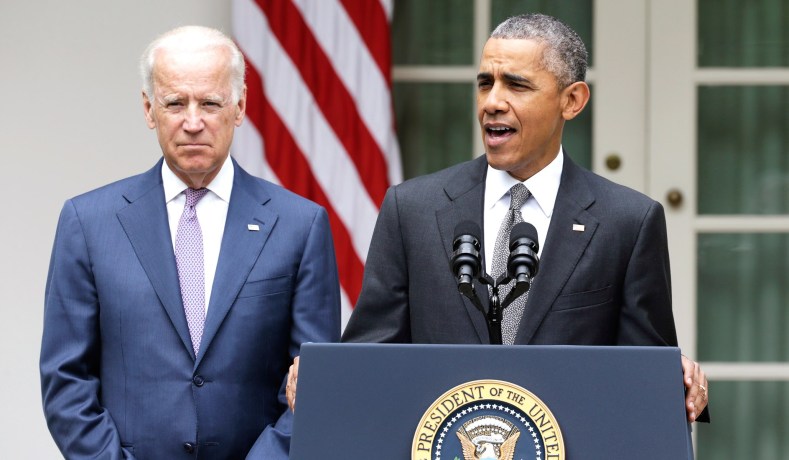
During the Democratic National Convention this week, expect to see the party’s leaders assail the Trump administration for damaging America’s alliances and disregarding international institutions that advance U.S. foreign policy. A few of these criticisms might align with what some Republicans think, particularly where Trump has bucked GOP national-security orthodoxy, but many of the Biden campaign’s promises seem to mimic the mistakes of the Obama administration. An unreflective approach to multilateral engagement is one of these mistakes, and it is enshrined in the platform that the Democratic Party will approve during this week’s festivities.
Included within a draft of the document is a pledge to strengthen the international institutions “from which President Trump has orchestrated an American retreat,” thereby weakening U.S. influence. The draft platform pledges to “rejoin and reform the WHO, the United Nations Human Rights Council, and the United Nations Population Fund, because in a global public health crisis and a global democratic recession, American leadership is needed more than ever.”
Presumably, the global democratic recession referenced by the document owes its existence to such authoritarian countries as Eritrea and Venezuela — which are currently members of the council. Serial human-rights abusers and persistent subjects of U.N. commissions of inquiry such as North Korea and Syria, which participate in the council’s debates, also contribute to the existence of a democratic recession. The same for Russia, which is a candidate for membership in October, and China, which plays a role in selecting U.N. human-rights experts. Meanwhile, the council has yet to hold a session on Beijing’s mass atrocities targeting Uyghur Muslims in the Xinjiang region.
Former U.N. ambassador Nikki Haley attacked the draft platform on Twitter when it was approved in July: “Which thing do the Dems like best, the extreme bias against Israel, the refusal to denounce China’s concentration camps, or the support for communist dictators in Cuba & Venezuela?”
Still, Haley’s approach upon entering office was to pursue a reform effort, but it didn’t yield any of the desired changes, leading the Trump administration to withdraw. Before that, Team Obama’s strategy was also to reform the council from within. Clearly that was unsuccessful. The 2020 Democratic draft platform promises to reform the council, but this ignores the unfruitful efforts of previous administrations. There’s no reason to believe that a future Biden administration will be any more successful. The council’s flaws are fundamentally structural, and will require changes to the criteria for elections and its standing agenda, which singles out Israel and no other state. The Trump administration does not seem to have lost much by withdrawing, as U.S. allies such as Australia have pushed back against the body’s authoritarian members.
This issue is undoubtedly one that will receive little attention this week, with all the conversation about the Postal System and other big ticket issues. But the Biden team should not get a free pass on championing multilateralism and American leadership if that means legitimizing the participation of the world’s worst dictatorships and abusers of human rights on an institution that considers itself the world’s top human-rights body. And sadly, the draft platform suggests that a potential Biden administration is poised to repeat the missteps of the Obama years.



